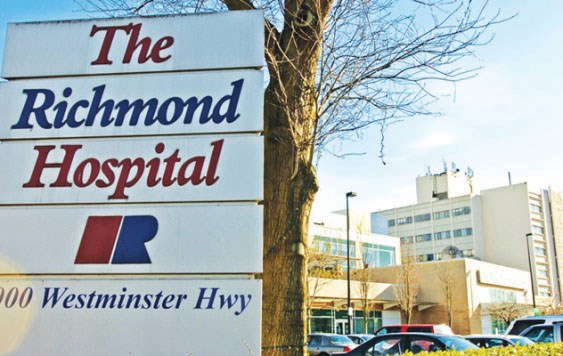Fearmongering, sensationalizing and reporting irresponsibly. We’ve heard it all before — sometimes it’s deserved, sometimes it isn’t.
In the current case of our report of an “outbreak” of COVID-19 at Richmond Hospital, we’ve been accused of all of the above, but bear with me as I make our case.
First, I want to point out that “outbreak” is not our word. This is how Vancouver Coastal Health (VCH) described the fact one or more cases of coronavirus had been detected on the second floor of the south building of the Richmond Hospital.
We learned of this “outbreak” not because of an announcement from our public health officer, but because our reporter stumbled upon a bulletin put out by VCH which lists “outbreak” sites.
But while the bulletin lists facilities, it doesn’t say the number of cases in each facility, and, initially, no one would tell us. That said, according to the VCH website “generally, an outbreak refers to three or more cases.”
The website also states “outbreaks occur when infected people....come to our hospitals and others become infected.”
In other words, we’re not talking about a situation where someone comes to the hospital and is diagnosed with COVID. Rather, this is where someone was infected at the hospital.
As such, there was no doubt in my mind at this point that this is an important story and the word “outbreak” was appropriate — so that’s what we posted.
At the end of the day, our reporter was on the press call with Dr. Bonnie Henry, and asked her about Richmond Hospital. Henry confirmed there was an “outbreak,” adding she understood there was at least one case.
So we went back to the story and included Henry’s comment. Pretty quickly, comments from readers flowed in. Most were supportive but some lambasted us for all the reasons mentioned above.
I called the reporter and we discussed some of our readers’ concerns. I agreed the word “outbreak” to describe one or two cases could be confusing. In fact, when I first heard it, I went into a minor panic as my dad was just admitted into Richmond Hospital Monday. (Not to worry, he should be home soon.)
The reporter and I recognized that VCH’s definition of outbreak may not be the same as the rest of ours, and while we’re not wrong in using the word, we have a responsibility to ensure readers have an accurate understanding of the situation, so we re-jigged the story.
A couple of observations here. One, less information can create greater anxiety. In the case of this pandemic, I actually think the province and VCH have done a good job of being transparent and keeping people informed. However, their reluctance to be specific about where and how many cases there are can, and I believe in this case did, backfire.
I have heard Henry talk about the need to respect people’s privacy. I’ve also heard Richmond’s medical health officer say that, given the lack of testing, providing a number would give people false confidence. I don’t really buy either argument. Absolutely, privacy needs to be protected but providing numbers doesn’t compromise that, and regarding knowing there are cases here, I think would only make people more vigilant.
The second thing is language. Throughout this pandemic we’ve seen the advent of a whole new lexicon: flattening the curve, social distancing, virtual happy hour, (also known as a locktail hour) and covidiot (you can guess.) And while most of us thought we knew what outbreak meant, clearly there are nuances.
My point here is not that we at the News don’t make mistakes, rush stories or care about our online page views. We do.
But when it comes to reporting the fact VCH has declared an “outbreak” at Richmond Hospital, we’re not fearmongering, sensationalizing or reporting irresponsibly.
We’re doing our job.



